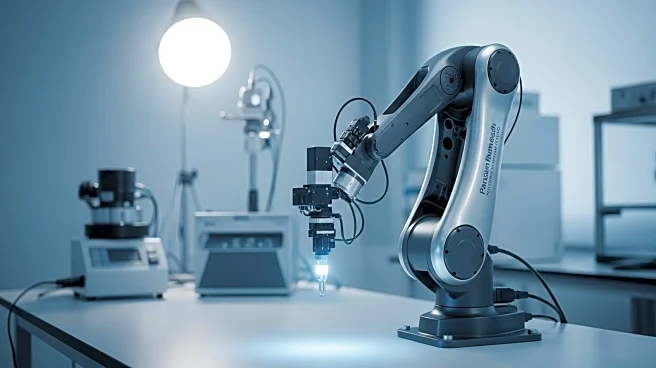What's Happening?
Panaxium Research Inc., a neuroscience company, has entered into an exclusive agreement with CoMotion at the University of Washington to license intellectual property aimed at improving stroke recovery therapies. The partnership focuses on developing personalized neurostimulation treatments that adapt to each patient's unique brain anatomy and injury. This innovative approach integrates AI-enabled neuroimaging and adaptive stimulation protocols to enhance motor function recovery for stroke and traumatic brain injury patients. The agreement covers technology co-developed by experts at the University of Washington and Seattle Children’s, which utilizes real-time brain signals to guide therapy, potentially improving outcomes for a broader range of stroke injuries.
Why It's Important?
The collaboration between Panaxium Research and the University of Washington represents a significant advancement in neurorehabilitation, addressing a critical unmet need for effective stroke recovery therapies. With over 100 million people globally affected by stroke, the current standard of care, primarily physiotherapy, offers limited recovery options. By leveraging cutting-edge research and technology, this partnership aims to provide new hope for stroke survivors, potentially improving their quality of life and reducing long-term healthcare costs. The integration of AI and dynamic stimulation protocols could revolutionize treatment approaches, offering personalized solutions that adapt to individual recovery processes.
What's Next?
Panaxium Research plans to integrate the licensed technology into its proprietary methods, aiming to develop next-generation precision stroke therapies. The technology is currently undergoing evaluation in a first-in-human clinical trial under an FDA Investigational Device Exemption. The trial, led by Dr. Jeffrey G. Ojemann and Dr. Steve Cramer, has achieved a milestone with its first implantation procedure, marking the start of patient enrollment and real-world testing. Successful outcomes from this trial could pave the way for full commercialization, offering a new standard of care for stroke recovery.
Beyond the Headlines
This development highlights the potential for personalized medicine to transform neurorehabilitation, emphasizing the importance of tailoring treatments to individual patient needs. The use of AI and real-time brain signal monitoring introduces ethical considerations regarding data privacy and the long-term implications of neurostimulation. Additionally, the partnership underscores the role of academic institutions in driving innovation and translating research into practical applications that can significantly impact public health.










